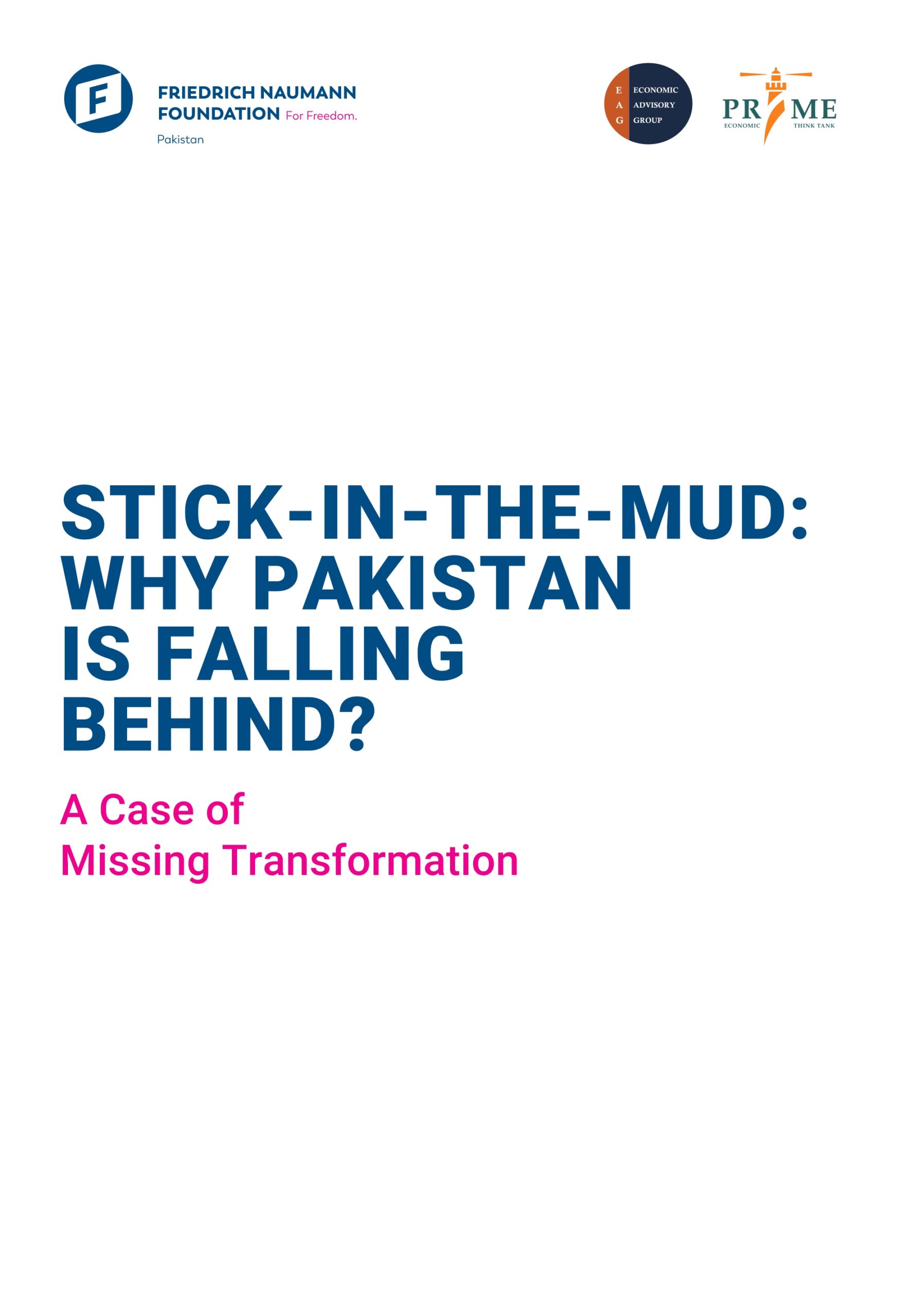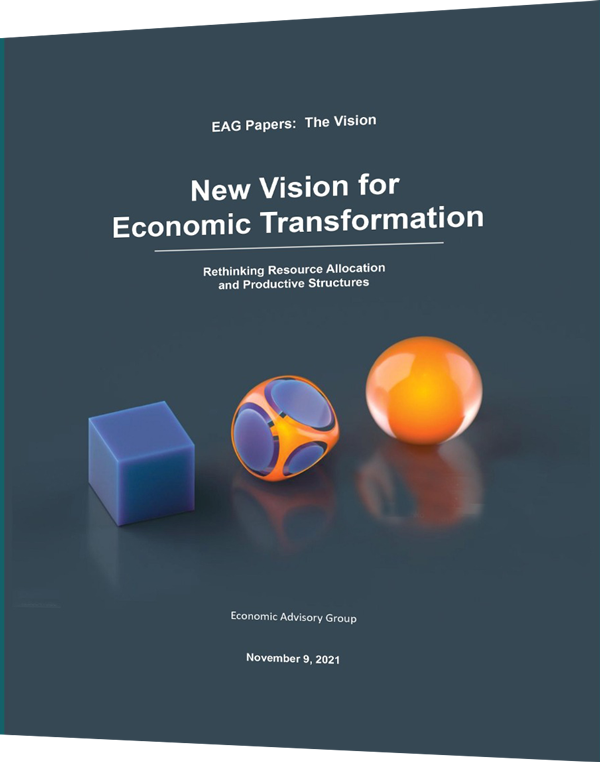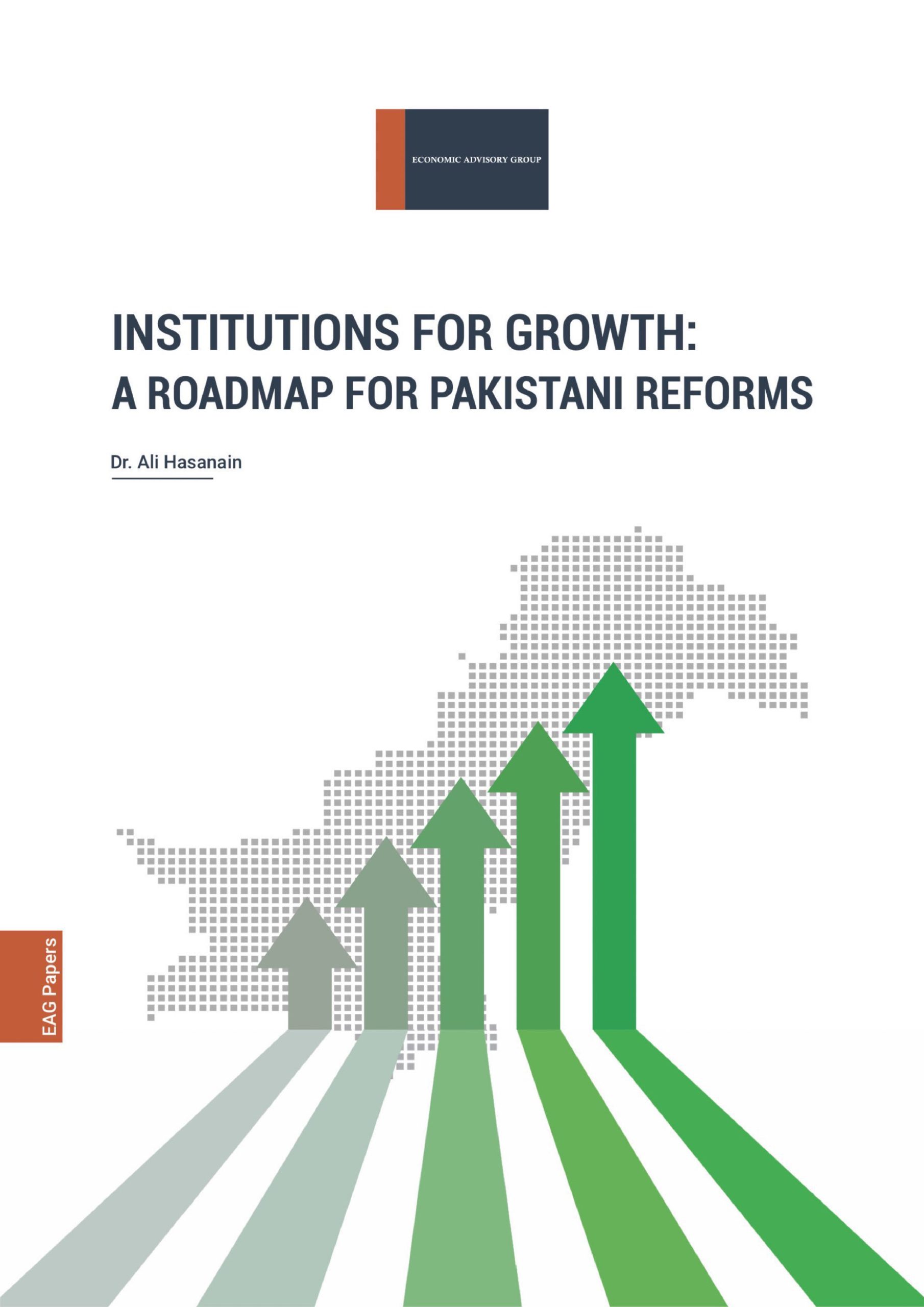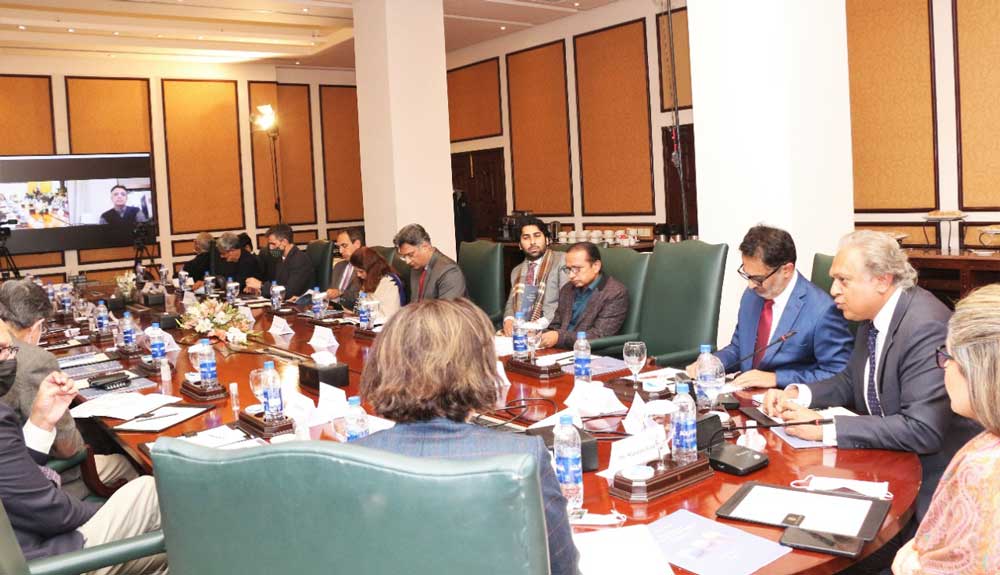EAG Calls for Holding the Policy Rate
EAG Calls for Holding the Policy Rate The Monetary Policy Committee (MPC) of the State Bank of Pakistan (SBP) has its next regularly scheduled meeting
Why is Pakistan falling behind? What is the role of dismal labour productivity growth in hindering meaningful transformation? Can overallocation of resources in some sectors at the expense of others due to political economy reasons explain Pakistan’s poor economic performance? This report attempts to answers these questions through the lens of structural transformation
The report starts with documenting the phenomenon of missing structural transformation in the case of Pakistan. Specifically, unlike regional peers, agriculture’s share in both total employment and value added has decreased by significantly less over the past several decades. Moreover, changes in the composition of both the export and the import baskets also point to limited economic transformation. We also find that the limited transformation Pakistan has undergone has been towards sectors with low productivity growth thus undermining the country’s future growth prospects. One of the key reasons behind the lack of transformation is that labour productivity in both the overall economy and the agriculture sector has increased by the least in the case of Pakistan relative to the regional economies. As a result, unlike in most other countries, there is limited incentive for labour to move from agriculture to non agricultural sector.

This document presents a vision for economic transformation, with a focus on understanding key factors which have prevented this from happening in the case of Pakistan. It draws from the experience of other emerging economies and leading economic research on how countries have successfully transformed their economies by letting their productive structures adapt and evolve over time. In this respect, the current document is a significant departure from the traditional focus on achieving growth by reinforcing existing structures of the economy. While such traditional approaches did deliver many episodes of growth spurts, these always proved to be short lived, often leading to the build-up of large imbalances and, ultimately, crises.

EAG Calls for Holding the Policy Rate The Monetary Policy Committee (MPC) of the State Bank of Pakistan (SBP) has its next regularly scheduled meeting
SIFC: A wrong step at times of worsening investment climate In their handbook chapter on what explains a country’s comparative advantage, Nathan Nunn and Daniel
EAG questions SBP’s performance The Economic Advisory Group (EAG) has expressed serious concerns regarding the inadequate response from the State Bank of Pakistan (SBP) in
The brief builds on the Economic Advisory Group (EAG)’s Vision Document by laying out the key public institutions and reforms that needs to be undertaken in service of enhancing the country’s international competitiveness and productivity through better, market-based resource allocations.
It argues that internal security, property rights, and contracts enforcement through a reliable policing and court system are essential building efficiency-enhancing markets. In addition, the country needs to enhance subnational governance by devolving revenue mobilization and creating a more competitive bureaucracy. Finally, Pakistan….


The Economic Advisory Group is an independent platform of individuals drawn from economics, policy and the private sector. The EAG deliberates on Pakistan’s economic policies regularly and shares its views with the public and government. It was formed in January 2021, under the auspices of PRIME Institute, an independent think tank, which serves as its secretariat.
The Economic Advisory Group is an independent platform of individuals drawn from economics, policy and the private sector. It was formed in January 2021, under the auspices of PRIME Institute, an independent think tank, which serves as its secretariat.
Menu Links
Newsletter
We may send you invitations, publications and announcements about our work. Please subscribe today.
Copyright © 2021 Economic Advisory Group. All Rights Reserved